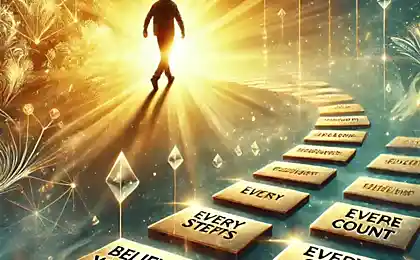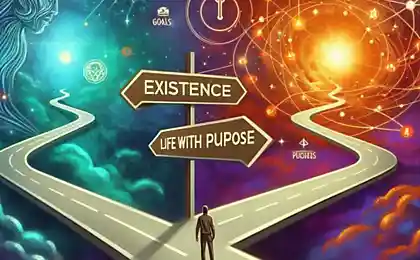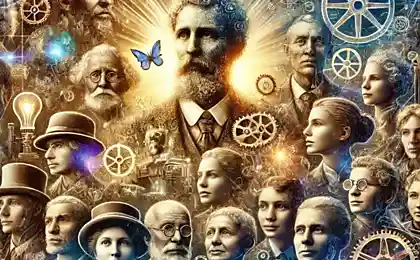141
How to Find Your Why in Life and Why
Imagine that you are successful by all standards of society, but there is a void inside. Familiar? Perhaps the problem is that you’ve lost touch with your true “why,” the inner compass that makes life meaningful.

When success does not bring happiness
The modern world offers us ready-made recipes for happiness: prestigious work, high income, beautiful relationships, active social life. But what happens when all these points are fulfilled and inner satisfaction never comes? You wake up in the morning feeling like you’re going the wrong way, even though you’re formally heading in the right direction.
Statistics show that 70% of people do not feel connected to their work, and 40% of adults experience a crisis of meaning at least once in their lives. This is not an individual problem; it is a systemic challenge of our time.
The problem is that we are living in other people’s scenarios. Since childhood, we are taught to follow external guidelines: get an education, find a stable job, start a family, buy real estate. All of this is important, but only if it fits your inner “why.” Otherwise, you’re building a beautiful but alien life.
What is your personal “why”?

Your “why” is not a profession or a hobby. It is a deep motivation that drives you to act even when there are no external stimuli. That’s why you’re ready to get out of bed on the toughest days.
The real “why” is never about how others want you to be. It comes from your unique experience and reflects the essence of your personality.
Examples of the real “why” may sound like this:
- I want to help people overcome loneliness because I know how it hurts.
- I strive to create a fair world where everyone has equal opportunities.
- I want to give children the warmth and attention that I lacked.
- I want to preserve the beauty of nature for future generations.
Note that each of these “whys” are emotionally charged and linked to personal experiences. These are not abstract noble ideas, but living, pulsating motifs that come from within.
Why the “why” search is so hard
Public programming
From early childhood, we are surrounded by other people’s expectations. Parents want us to be successful, teachers to be obedient, society to be productive. Gradually we forget to ask ourselves, “What do I want?” Instead, we automatically follow social patterns without even realizing it.
Fear of the truth
Finding your “why” can lead to uncomfortable discoveries. What if you’ve been going the wrong way for decades? What if your achievements don’t really matter to you? Many prefer not to dig so deep as not to face the need for drastic changes.
Information noise
The modern world is overloaded with incentives: social networks, advertising, opinions of bloggers, advice from coaches. All this noise drowns out the quiet inner voice that knows the answers to your questions. To hear your “why” you need to learn to create silence, both external and internal.
A practical algorithm for finding your “why”

Step 1: Honest questions to yourself
Start with simple but profound questions. Take your time with the answers – let them mature:
- At what point in your life did you feel the most meaningful?
- What are you willing to fight for, even if you are alone?
- What problems in the world cause you the strongest emotional reaction?
- What do you enjoy doing without getting paid?
Step 2: Analysis of Turning Points
Think about the events that radically changed your worldview. It could be losses, betrayals, unexpected victories, meetings with special people. It is in these moments that our deepest beliefs and values are often formed.
Maria lost her parents in adolescence and felt useless for a long time. Today, she runs a fund to support orphans. Her “why” is to give other children the care and support she lacked.
Step 3: Observing emotional reactions
Pay attention to what causes you strong emotions: anger, delight, tears, inspiration. Where there is a strong emotional response, there is something important to your soul. Keep a diary of such moments for a month - you will be surprised what patterns you find.
Step 4: Mortality test
Imagine that you have one year left to live. How would you manage that time? What would you regret most, what you did or what you didn’t do? This thought experiment mercilessly cuts off everything superfluous and leaves only the most important.
Step 5: Practical Research
Don’t limit yourself to thinking – act. Try volunteering in different areas, participate in social projects, explore new areas. Your “why” is manifested not only in thoughts, but also in actions. When you find your way, you will feel it with your whole being.
When the search comes to a standstill
Don’t worry if the answers don’t come right away. The search for meaning is not a sprint, but a lifelong marathon. Your “why” can evolve with you, getting deeper and more accurate over the years.
Sometimes the most important discoveries come at the most unexpected moments – in casual conversation, while reading a book, while walking in the woods. The main thing is to remain open to these insights.
If you feel that you have reached a dead end, try to change the approach. Instead of asking, “What is my purpose?” ask yourself, “How can I make the world a little better?” Sometimes global issues are paralyzed and simple ones are liberated.
Living with a 'why' found
When you connect with your “why,” life changes dramatically. Decisions are made easier because you have an internal evaluation criterion. Difficulties no longer seem insurmountable, because you understand what is worth fighting for.
This does not mean that life becomes simple. On the contrary, it can become more difficult because you stop making compromises with yourself. But that complexity is meaningful. You live your own life, not someone else's.
Remember, your “why” isn’t a destination, it’s a travel compass. It does not guarantee an easy road, but it promises that the road will be yours. That is the difference between existence and real life.
Glossary
"Why" (life purpose)
The deep motivation of a person, explaining the meaning of his existence and actions, independent of external circumstances and social expectations.
An existential crisis
A state of deep doubt about the meaning and value of one’s own existence often arises when one achieves external success without inner satisfaction.
Social programming
A person’s unconscious assimilation of social patterns of behavior, goals, and values that may not match their true needs.
Internal compass
Metaphorical designation of an intuitive understanding of the rightness or incorrectness of one’s decisions and life direction.
Turning points
Significant events in a person’s life that radically change his worldview, values or life trajectory.
Information noise
Excessive amount of informational stimuli in the modern world, preventing a person from focusing on the important things and hearing his inner voice.
7 Signs of Moral Exhaustion and Pathways to the Revival of Internal Energy
7 ways to survive public humiliation without losing face























